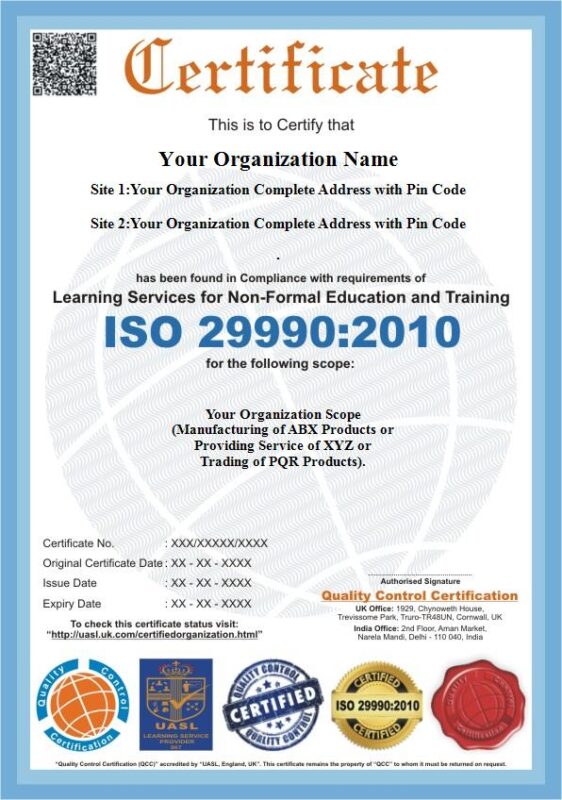ISO 29990 Certification, Uncategorized
ISO 29990 Certification
Courtesy: ISO 29990 Certification
ISO 29990:2010 specifies basic requirements for providers of learning services in non-formal education and training.
The ISO 9000 family of quality management systems (QMS) is a set of standards that helps organizations ensure they meet customer and other stakeholder needs within statutory and regulatory requirements related to a product or service. ISO 9000 deals with the fundamentals of QMS, including the seven quality management principles that underlie the family of standards. ISO 9001 deals with the requirements that organizations wishing to meet the standard must fulfill.

Third-party certification bodies provide independent confirmation that organizations meet the requirements of ISO 9001. Over one million organizations worldwide are independently certified, making ISO 9001 one of the most widely used management tools in the world today. However, the ISO certification process has been criticized as being wasteful and not being useful for all organizations.
ISO 9000 was first published in 1987 by the International Organization for Standardization (ISO). It was based on the BS 5750 series of standards from BSI that were proposed to ISO in 1979. However, its history can be traced back some twenty years before that, to the publication of government procurement standards, such as the United States Department of Defense MIL-Q-9858 standard in 1959, and the United Kingdom’s Def Stan 05-21 and 05–24. Large organizations that supplied government procurement agencies often had to comply with a variety of quality assurance requirements for each contract awarded, which led the defense industry to adopt mutual recognition of NATO AQAP, MIL-Q, and Def Stan standards. Eventually, industries adopted ISO 9000 instead of forcing contractors to adopt multiple—and often similar—requirement

